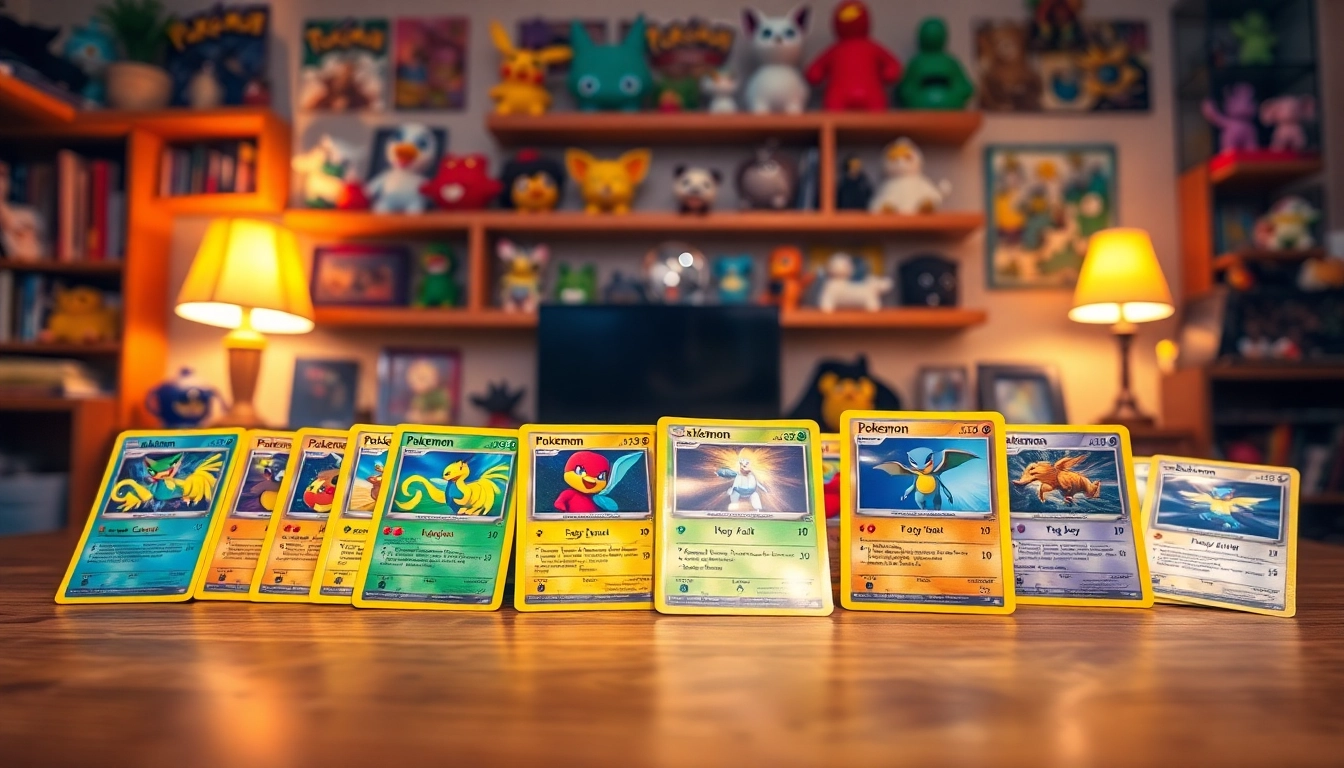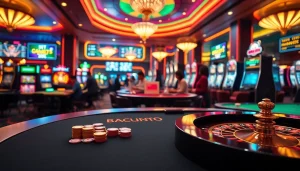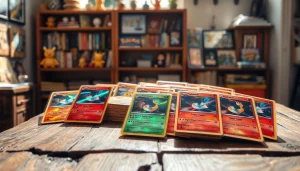Understanding Real Pokemon Cards
What Are Real Pokemon Cards?
Real Pokémon cards are authentic trading cards that are part of the Pokémon Trading Card Game (TCG) franchise. These cards, which feature various Pokémon, trainers, and abilities, are collectible and can be used in the gameplay that has captivated fans since the game’s inception in the late 1990s. Authentic Pokémon cards are made from a specific type of cardstock, printed with exquisite detail, vibrant colors, and feature unique holographics that reflect light in a specific way. Collectors often cherish these cards due to their value, rarity, and the nostalgia they invoke.
How to Identify Genuine Cards
Identifying a genuine Pokémon card can be tricky, especially with the rise of counterfeit cards flooding the market. Here are some key indicators to help you determine authenticity:
- Light Test: Genuine cards will allow light to filter through them and will have a blue core visible at the edges when held up against the light.
- Card Texture: Authentic Pokémon cards have a specific texture that can be felt when touched. The surface should be slightly smooth yet retain a soft, quality feel.
- Weight and Thickness: Real cards have a standard weight and thickness. If a card feels unusually light or thin, it may be fake.
- Holographic Features: The holographic cards have specific patterns that can only be observed under certain angles and lighting.
- Print Quality: Check for blurred images or misaligned text. Genuine cards have high-resolution printing.
Common Myths About Pokemon Cards
There are several myths surrounding Pokémon cards that can mislead collectors. Let’s debunk a few:
- Myth: All Old Cards Are Valuable: While vintage cards can be worth something, not all old cards have high value. Rarity, condition, and demand play significant roles in determining value.
- Myth: Holo Cards Are Always Worth More: Holographic versions of cards can sometimes be worth more, but this is not a rule across the board. Non-holo cards can command high prices based on their rarity.
- Myth: Condition Doesn’t Matter: The condition of a card can significantly impact its value. Cards that are graded by professionals are often worth more than ungraded ones.
The Rarity and Value of Pokemon Cards
What Determines the Value of a Pokemon Card?
The value of a Pokémon card is determined by various factors, including:
- Rarity: Cards that are part of a limited print run or are promotional in nature typically have higher values.
- Condition: The higher the card’s condition, assessed via grading systems like PSA or BGS, the greater its value.
- Market Demand: The popularity of the card among collectors and players can affect its perceived value.
- Current Trends: Market trends can fluctuate wildly; a card’s value can jump based on nostalgia, strategies in gameplay, or re-releases.
How to Assess Card Rarity
To assess the rarity of a Pokémon card, consider the following:
- Edition and Print Run: First-edition cards are usually the most sought after. Understand the print runs of different sets.
- Card Number: Cards with lower numbers in a set are generally rarer than those with higher numbers.
- Special Markers: Look for cards labeled as “rare,” “ultra-rare,” or special promotional cards.
Popular High-Value Pokemon Cards
Some Pokémon cards have achieved legendary status among collectors due to their rarity and historical significance. Examples include:
- Charizard (1st Edition Shadowless): Often hailed as the ‘Holy Grail’ among Pokémon cards, this card can fetch thousands if graded highly.
- Pikachu Illustrator: Recognized for its extreme rarity and unique artwork, it was awarded as a prize in a Pokémon illustration contest.
- Shining Charizard: From the Neo Destiny set, this card is sought after for its unique shimmer and rarity.
Where to Buy Real Pokemon Cards
Trusted Online Platforms and Retailers
When purchasing real Pokémon cards, it’s vital to choose trusted platforms. Some reputable options include:
- Real pokemon cards are available at various retail sites, including:
- Pokémon Center: The official Pokémon website selling merchandise directly from the franchise.
- TCGPlayer: An online marketplace specifically for trading card games, featuring ratings for sellers.
- eBay: A vast platform where collectors can buy and sell cards; however, ensure to check seller ratings.
How to Avoid Scams When Buying Online
While online shopping can be convenient, it comes with risks. Here’s how to safeguard yourself:
- Research the Seller: Look for reviews and ratings of the seller as well as their return policy.
- Ask for Detailed Photos: Request high-quality images of the cards before purchasing.
- Be Aware of Pricing: If a deal seems too good to be true, it often is. Compare prices and avoid overly cheap offers.
Local Game Stores vs. Online Shopping
When deciding between purchasing Pokémon cards from local game stores (LGS) or online, consider the following pros and cons:
- Local Game Stores:
- Pros: Ability to inspect the cards personally, create community connections, and sometimes access exclusive local events.
- Cons: Limited inventory compared to larger online platforms, potentially higher prices due to overhead costs.
- Online Shopping:
- Pros: Greater access to a vast inventory, competitive pricing, and often access to customer reviews to help with decision-making.
- Cons: Risk of buying counterfeit cards, reliance on shipping times, and lack of personal interaction with products.
Collecting and Caring for Your Cards
Best Practices for Storing Pokemon Cards
Storing your Pokémon cards properly is essential for maintaining their condition and value. Here are some best practices:
- Use Sleeves: Place each card in a protective sleeve before putting them into binders or boxes.
- Store in a Cool, Dry Place: Avoid exposure to direct sunlight, humidity, and extreme temperatures.
- Consider a Binder System: Binders with plastic sheets allow for easy viewing while protecting from dust and scratches.
How to Grade Your Pokemon Cards
Grading is a significant aspect of the card-collecting hobby. Here’s how you can grade your cards:
- Assessing Surface Quality: Check for scratches, smudges, or any printing defects.
- Edges and Corners: Ensure there are no dents or fraying at the corners, and the edges should be crisp.
- Centering: Measure the centering by observing the borders. Ideally, they should be even.
Display Ideas for Your Collection
As a collector, displaying your cards can be as enjoyable as collecting them. Here are a few creative ideas for displaying your Pokémon cards:
- Card Frames: Use stylish frames that can showcase your favorite cards while keeping them protected.
- Display Cases: Invest in a glass display case to protect your collection from dust while showcasing it proudly.
- Wall-mounted Displays: Create a gallery wall using shelves or shadow boxes to display cards attractively.
The Pokemon Card Community
Engaging with Other Collectors
Joining the Pokémon card community can enhance your collecting experience. Here are ways to engage with fellow enthusiasts:
- Attend Local Events: Participate in local tournaments or card trading events to meet other collectors and players.
- Join Social Media Groups: Platforms like Facebook and Reddit have dedicated groups for Pokémon collectors and game enthusiasts.
Online Forums and Groups for Collectors
Online forums provide a wealth of information and a sense of community. Some popular forums include:
- r/PokemonTCG on Reddit: A vibrant community where users discuss gameplay strategies, trading tips, and card values.
- Pokémon Forums: Specific forums dedicated to trading cards offer space for discussion on various aspects of collecting.
Upcoming Events: Trading and Expo Opportunities
To keep up with the latest in the Pokémon community, stay informed about upcoming trading events and expos. These events often include:
- Pokémon World Championships: A global event where players gather to compete and trade cards.
- Local Collectors’ Expos: Many cities host expos focusing on trading and showcasing collectible cards.


